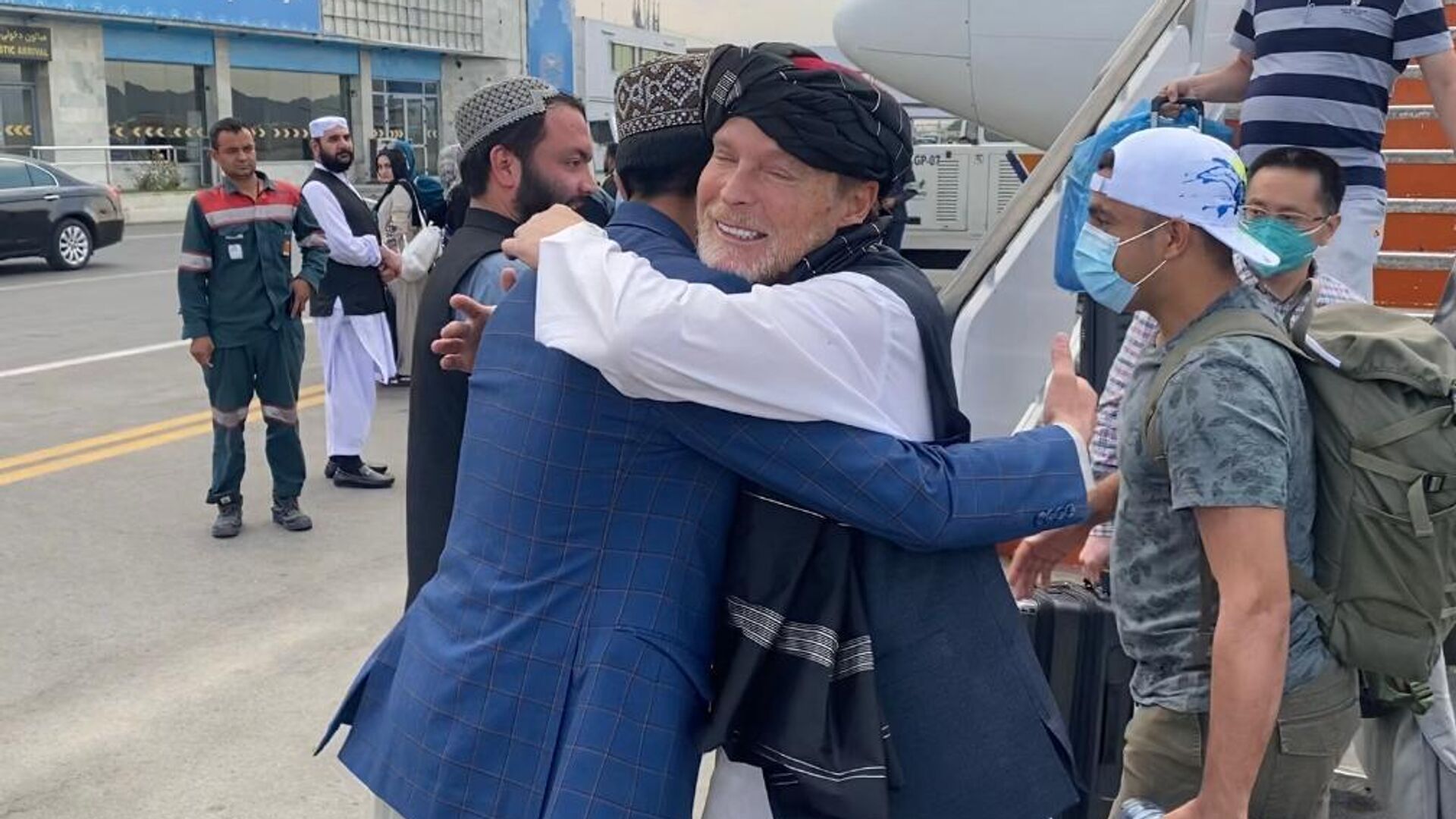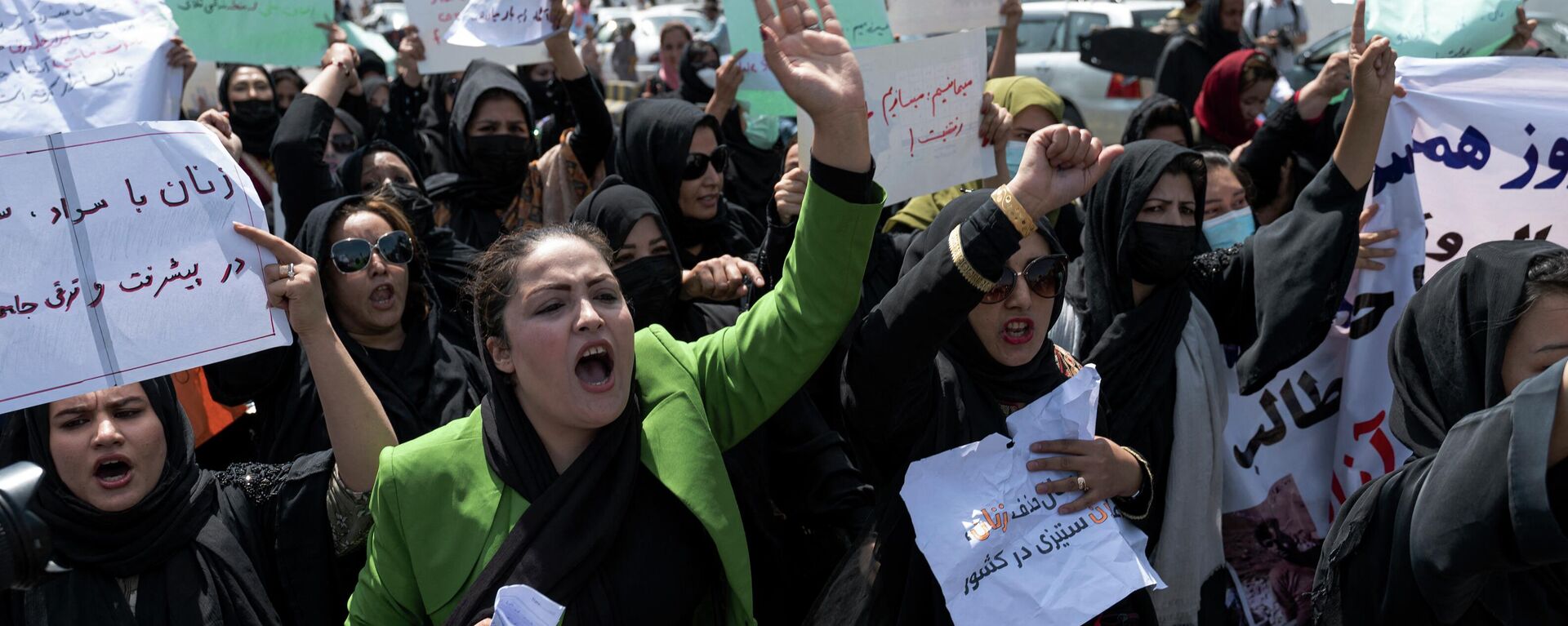Aussie Who Spent Years as Taliban Hostage Returns to Afghanistan to Mark Anniversary of Kabul’s Fall
17:55 GMT 13.08.2022 (Updated: 17:59 GMT 13.08.2022)

© Photo : Twitter / af13422190
Subscribe
The man spent more than three years as a hostage of the Taliban*, during which time he converted to Islam and became an active supporter of the Afghan militant group.
Timothy Weeks, the Australian teacher who was kidnapped by the Taliban in 2016 and held by the group for 1,192 days before being exchanged for three high-ranking Taliban officials in November 2019, has returned to Afghanistan to praise his former captors and celebrate the upcoming one-year anniversary of the Taliban victory against the US-led coalition and its puppet government.
“I first came to Afghanistan six years ago, as you know, in 2016. And I came here with a dream to learn about Afghanistan. And now I am coming again to complete my journey. This is the ‘part 2’ of my journey,” Weeks told media in Kabul on Friday.
“I am also coming to celebrate the one-year anniversary of the government of the Islamic Emirate of Afghanistan, whom I have stood behind,” the Aussie added, using the formal name for the self-proclaimed Taliban-controlled government. “I spent three-and-a-half years with Taliban soldiers, and I saw these people in a light that nobody else has been able to do,” Weeks said.
Upon his arrival in Kabul, Weeks, who now goes by the name Jibra’il Omar, also hugged it out with Taliban police spokesman Khalid Zadran, who greeted him at the airport.
The Wagga Wagga academic and his US colleague Kevin King were abducted by the Taliban outside the American University of Afghanistan in Kabul in 2016. Shortly after returning to his native Australia in a prisoner swap, the man described the conditions of his detention, including tiny, windowless cells, lack proper medical care, and long periods being held in the dark. At times, he said, he “felt as if [his] death was imminent and that [he] would never return” home to see his loved ones.
Weeks converted to Islam with the help of his Taliban captors, but said they first threatened to kill him after he expressed his desire to convert on the basis of their “unfathomable, unshakable faith.”
After his ordeal, Weeks became an advocate for the Taliban, travelling to Doha, Qatar in February 2020 to take part in the US-Taliban agreement signing ceremony at his own request and his own expense.
Timothy Weeks, the Australian prof who was released by the Taliban after being held captive for over 3 years, arrived in Doha to participate in US-Taliban agreement signing ceremony. He was welcomed by Anas Haqqani, the man who was freed in exchange for him & American Kevin King. pic.twitter.com/gUQqFBtIpC
— Sharif Hassan (@MSharif1990) February 27, 2020
Earlier this year, Weeks expressed hope to one day return to Afghanistan, and told media that he would like to spread the word that Islam is a religion of peace, in spite of media portrayals to the contrary.
Weeks’ appearance back in Kabul sparked outrage among Australian media, with the Weekend Australian and news.com.au characterizing the video of his trip as “shocking” and “stunning.”
An Amnesty International refugee rights campaigner told SBS News that the footage of Weeks “brings a lot of anger and frustration” among Australia’s Afghan refugee community, and that “there’s nothing to celebrate” of a regime that violates women’s rights, and denies girls the right to go to school.
The Department of Foreign Affairs and Trade has a ‘Do Not Travel’ advisory in place on Afghanistan due to the unstable security situation and threat of terrorism. The DFAT has also urged Australians not to ‘engage with’ the Taliban, warning that this may carry the penalty of sanctions.
The Australian military took part in the US-led coalition’s occupation of Afghanistan between 2001 and 2021, with around 30,000 troops serving in the country and 41 dying there over a twenty year period. The military became swamped in a war crimes inquiry in 2016, with the probe ultimately finding evidence of the murder of 39 civilians and prisoners of war at the hands of or instructions of Australian Special Forces, along with cruel treatment, including torture.
* A group under United Nations sanctions for terrorist activities.




